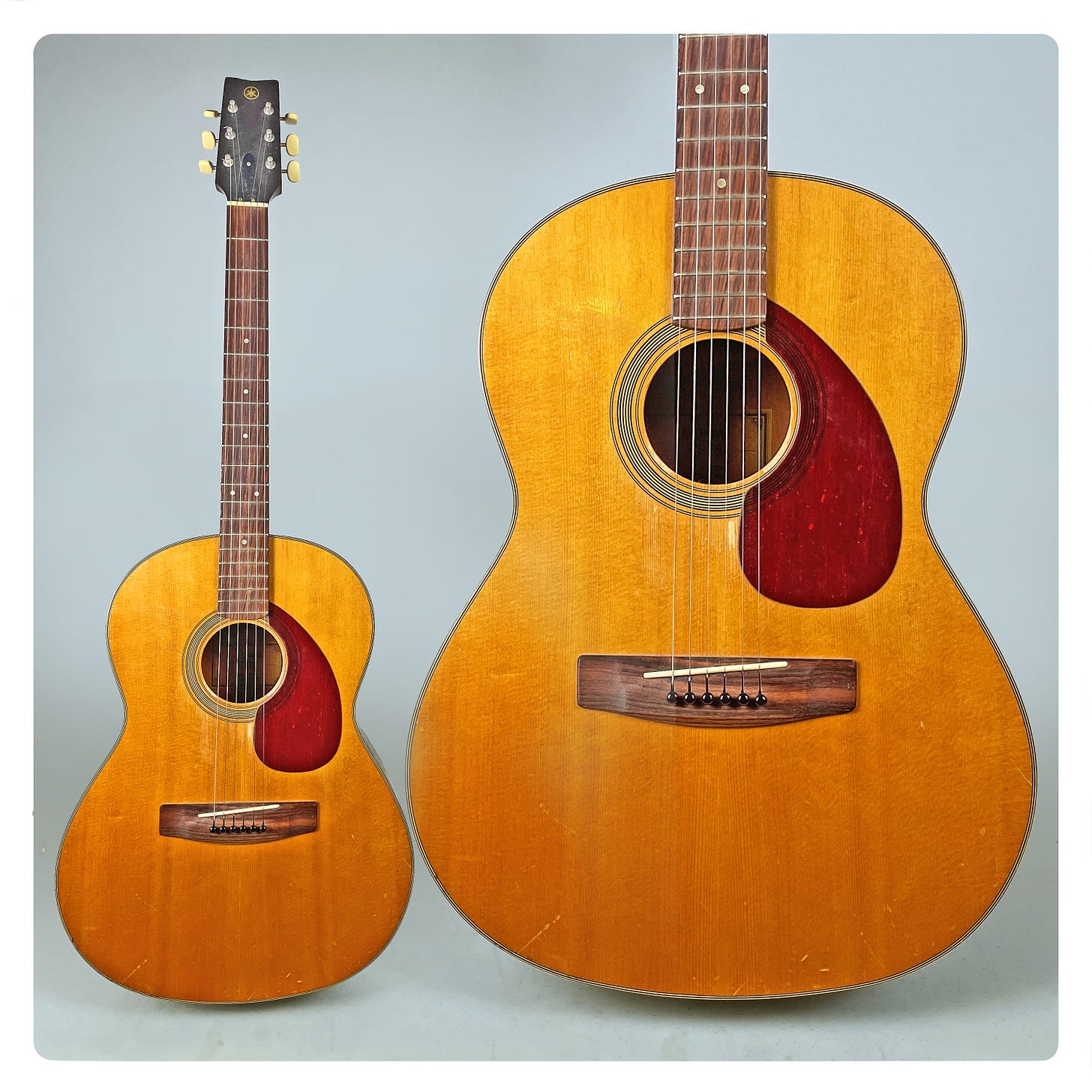GEAR TALKIN’™️: #10: Nippon Gakki Red Label + Cold Water (unreleased rough mix)
Happy GEAR TALKIN’™️ to one and all! It’s Mark, and today’s post is advice for you if you’re looking for a nice old, cheap, good-playing and sounding acoustic guitar. Take it. Leave it. Yurt it up. I won’t be offended.
People sometimes ask us for advice on good options for older acoustic guitars that play well, sound nice, but won't break the bank. It’s nuts how expensive new acoustic guitars are these days, and equally crazy how low quality the cheap side of the market can be. Remember when you could stumble upon an old Gibson, or maybe a Guild acoustic, for like $250? Yeah, me neither. Well, one option these days is the student/entry-level acoustic guitars made by Yamaha in the 70’s in their Japanese "Nippon Gakki” factory (translation: Japan Musical Instrument, an early moniker for the Yamaha company).
Yamaha's early acoustic guitars would have different color stickers inside the sound hole, which were used to differentiate the factory and country of origin. The Japanese red labels are thought to represent the golden age—there are a few different models from this particular time and place that just came out great. Like Gibson’s Kel Kroydon guitars from the 30’s, these were created to be affordable student models, but were accidentally constructed fantastically. These Nippon Gakki “red labels” can still be found in the wild, but dealers are becoming more and more hip to these accidental treasures, and you now see them in shops going for bigger bucks.
The specific guitar in the photograph is actually not one of the red labels I spent so much time describing above, but rather its close cousin, the tan-labeled FG-75 made in Taiwan in the 70’s-80’s. It’s a sturdy workhorse that sounds and plays pretty swell. We use this one as the Loft's Nashville Tuning guitar, which in simple terms is a guitar that utilizes the higher six strings from a 12-string guitar set.
This tuning gives the guitar a decidedly chimy, almost mandolin-like sound that scratches a different itch than the standard acoustic range, and finds its own place in a mix. Some call it the "cheater’s 12" or "the guitar hi-hat". This whole idea is credited to Nashville session guy Ray Edenton, a sideman and member of the star-studded "Nashville A-Team", who played on thousands of recordings over his over forty-year career. Ray passed away just this past September at the age of 95 years old. Man, what a great run! And also...Nashville Tuning reminds me of Nashville Numbers, an ingenious simplification system session players would use to shorthand the chord progression for all the players in the room. In the days of conveyor-belt recording sessions, if you had to play a song twice, you were already losing money.
Mark’s got you covered on the written content while I’m in Los Angeles for the week. Thanks, Mark! Here’s a track called “Cold Water” I made with the kids a few years ago that don’t think ended up anywhere.
— OxO Jeffy
Keep reading with a 7-day free trial
Subscribe to Starship Casual to keep reading this post and get 7 days of free access to the full post archives.






